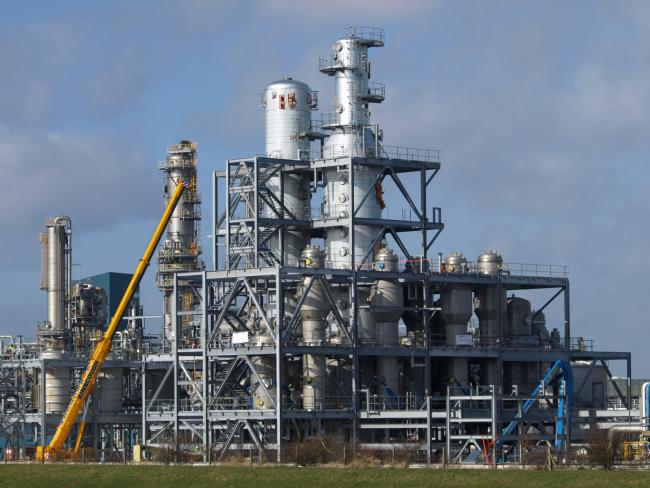28 August 2025

The Saltend bioethanol plant under construction in 2010. Photo Andy Beecroft / geograph.org.uk (CC BY-SA 2.0).
The government’s trade deal with the US has led to the closure of Vivergo Fuels bioethanol plant in Saltend, Humberside.
The deal scrapped tariffs on a quota of 1.4 billion litres of bioethanol from the US, the exact size of the UK production. This will allow US ethanol to flood the British market.
‘The deal will allow US ethanol to flood the British market.’
The Vivergo plant is owned by Associated British Foods (ABF) and was Britain’s largest producer of bioethanol fuel – a fuel derived from plants and considered to be a green alternative to fossil fuels.
Last delivery
Vivergo bought up to 1 million tonnes of wheat each year from British farmers. The last wheat delivery to the plant was on 1 August. Redundancy of its 160 employees began on 19 August.
Over 4,000 British farmers supplied the plant and will now have to find alternative buyers for their wheat, facing weaker prices due to the drop in demand. The closure is also a blow to Britain’s logistics industry. When in full operation, 140 lorries visited the plant each day.
“Thrown away”
ABF accused the government of having “thrown away billions in potential growth in the Humber” and the opportunity to “lead the world” on clean fuels.
The general secretary of the Unite union, Sharon Graham, said: “This is a shortsighted decision that totally disregards the benefits the domestic bioethanol sector will bring to jobs and energy security.”
Killed off
Ethanol produced from plants like Saltend is used mixed with petroleum-based fuel and as an alternative feedstock for many industrial chemical processes. The plant’s closure has also killed off a potential £1.25 billion investment in the region and in the production of green aviation fuel.
Earlier this year Meld Energy had signed an agreement with Vivergo for a sustainable aviation fuel facility at Saltend Chemicals Park. Meld’s CEO said that they will have to look outside Britain to where “that infrastructure is already in place”.
